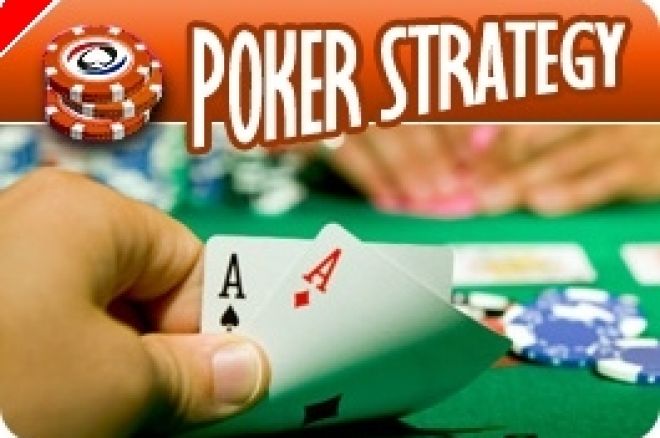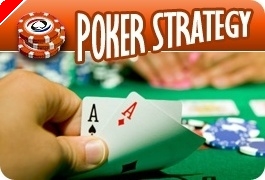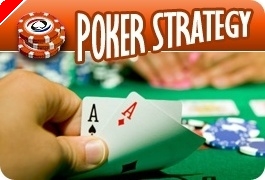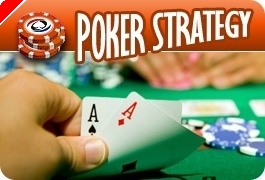Stud Poker Strategy: Fifth Street Quiz, Part 2 of 2

In the last column I asked you what your best betting action would be with a certain hand on fifth street. Let's reprise the hand situation:
The game is $20/40 stud with a $3 ante and a $5 forced bet from the low card. It's a casino game.
You've been drawing to a flush against two opponents. You have (K?8?)7?Q?8?. The 9? was folded on third street.
Starting to your left, your fifth street opponents show: (x-x)3?9?3? and (x-x)A?3?8?. The guy who just paired his treys tends to be loose and a wild �C though not a moron and not a maniac. The guy with the ace, who led out on third and fourth, tends to be straightforward. He's a solid player who rarely gets out of line. You are known as a solid tight and aggressive player. Some of your opponents undoubtedly think of you as too tight.
The guy with the door card ace completed the bet on third and led out on fourth. The guy with the pair of treys called on third, called on fourth, and just bet $40 on fifth street with his exposed pair. The ace called.
It's up to you. Do you call, raise, or fold �C and why do you do what you do?
In Part 1 we looked at the size of the pot and the possibility of improvement and decided that it would surely be a mistake to fold. But we concluded by recognizing that it might make sense to raise. We'll examine that possibility in this column.
In general, it makes sense to raise on fifth street when the combined possibility of two different possible scenarios improves your likelihood of winning the pot.
Here are those good scenarios. First, your raise may cause one or both of your opponents to believe that you have a made hand that they should not pay to draw against �C causing one or both of them to fold �C and thereby greatly improving your chances of winning the pot. Second, your raise may induce both of your opponents to check to you on the turn, thus saving you a bet if you are still drawing.
If, for example, you knew that your raise would freeze their action on sixth street 100% of the time, but that if you just called they would bet 100% of the time on sixth street, then you should surely raise, since you have at least some chance of causing at least one of them to fold, greatly increasing your chances of winning with no additional net cost. (The cost of your raise on fifth street, plus a checked round on sixth street that the raise produced, exactly equals the cost of your call on fifth street plus your call on sixth street of the bet they would make if you didn't raise on fifth street.)
So what are the chances that your raise will either freeze their action on sixth or cause one of them to fold on fifth? It's hard to be certain, of course �C since you aren't even certain of what your opponents hold. But what seems likely?
The player who just hit trips tends to be loose and aggressive. He probably has two pair. He's already invested one bet on this round. He only has to call one more bet to see sixth street �C when it's possible he'll hit a full house. He's unlikely to fold unless he only has that pair of threes.
The other player, with the ace, is also unlikely to fold �C not because he's loose �C but because when he makes his decision there will already be two additional large bets in the pot. And he'd only be facing your single bet. It would be different if you were in between the treys and the ace. In that case your raise would make it a double bet for the ace to call, with a possibility that there might be two more bets before the round was done. In that instance, a tight player might well fold if he only held a pair of aces �C his likely hand. In this instance, even if he only has a pair of aces, he's not very likely to fold to your bet given the size of the pot.
Another consideration is that your board is not very scary. It would be different if you had three suited cards exposed or if the hand played out different and you had just hit the ace and he had the king. In the former case he might fear that you just hit your flush, and he might fold. So might the other player as well (he's loose but not blind). And if you just hit the ace, your hand would be significantly better. He'd have to fear that you just hit aces up and he'd be drawing very thin with just a pair of kings or even kings up.
As it is though, with you hitting the eight on fifth street �C and an unsuited eight as well �C the only hand that your opponents may fear is trip eights. And that would be unlikely from a tight, aggressive player like you. Would you really have called a raise from an ace with only a pocket pair of eights and then called fourth street as well with no apparent improvement? Unlikely.
So it's unlikely that your raise will get anyone to fold.
On the other hand, you need to think about whether it's likely to freeze their betting. Remember, if you're certain that it will, even a thin possibility of getting your opponents to fold on fifth may justify it.
Your opponent with the pair of treys, who is loose and somewhat wild, may well check to you on sixth. He may only have those threes, or maybe threes and a pocket pair. If he hits a blank he may well not want to continue to bet. The player with the ace is unlikely to bet unless he hits a full house �C since he's probably at least a little afraid that you may have the unlikely hand of trip eights. You're not a maniac, so they must give you credit for having something when you raise, no? And, now that you review the possibilities in your head, you realize that the player who just paired his three may well have bet just because he was first to go. He may only have those threes. If he does then he may well fold to your raise, since even he'd be unlikely to chase two players with only a pair of threes. And though the player with the exposed ace is unlikely to fold to your raise, there's certainly a chance that he'll give up the hand.
So I'd probably end up raising if I thought my image really was very tight �C if for example I had folded a lot of hands in a row up until then. On the other hand, I'd want to make sure that I hadn't made a similar move recently.
As you can see, fifth street is very tricky.








